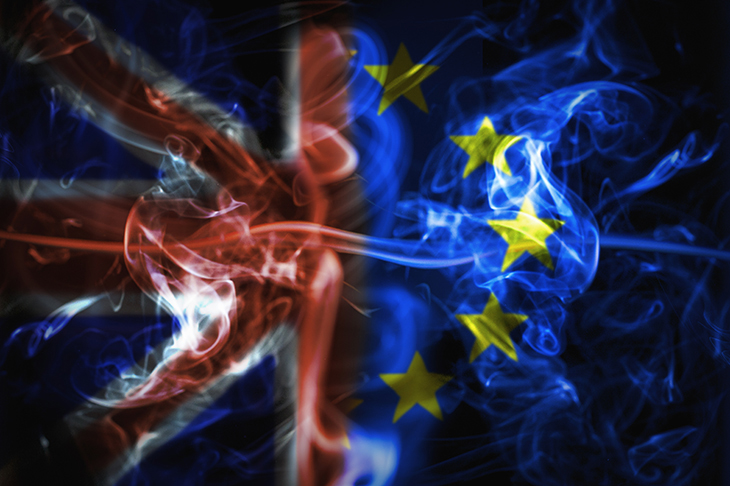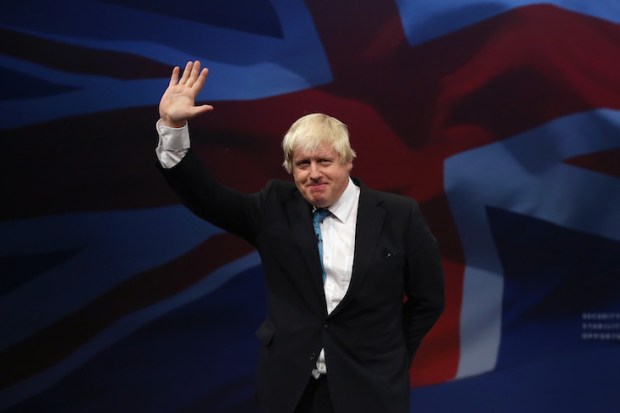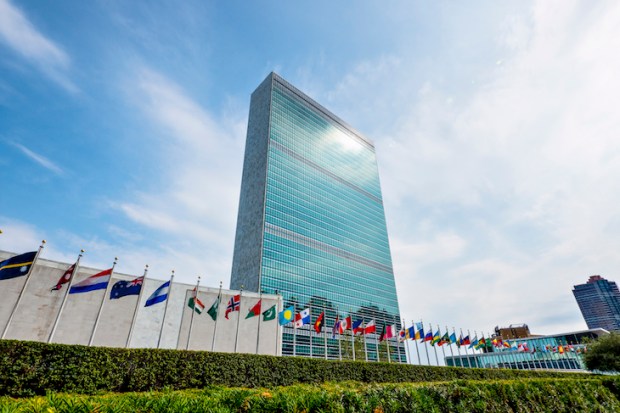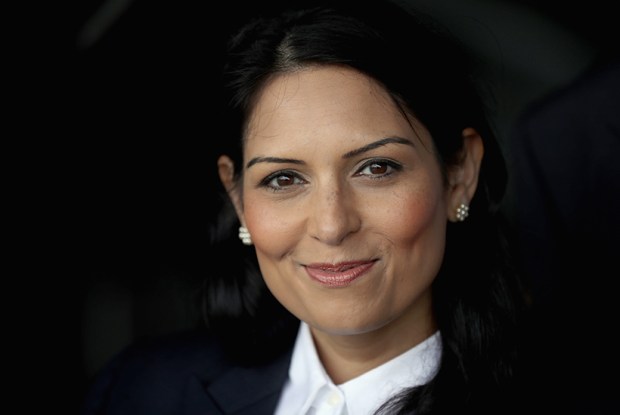It is all beginning to feel like the closing scenes of the 1980 spoof comedy film Airplane! In particular the bit where, as the stricken jet is coming in to land, someone in the control tower suggests putting on the runway lights to help a little. ‘No,’ says Captain Rex Kramer, ‘that’s just what they’ll be expecting us to do.’ The most basic explanation for the chaos in parliament is that the political divide in the House of Commons does not remotely match the political divide in the country, on Brexit or indeed on most issues, surely. But that shouldn’t stop us revelling in the multifarious paradoxes which have come as a consequence. (And don’t call me Shirley.)
Take Magic Grandpa. Here is a man who is deeply, viscerally and ideologically opposed to the European Union doing his level best to keep us in it. Mr Corbyn has also been demanding a general election — now! —when it is the very last thing he wants. He is therefore in the position of arguing with great vehemence for two things, neither of which he remotely believes in. This is a continuation of the paradox that thrilled us so much during the time of Theresa May’s tenure as prime minister. A leader who wanted us to remain leading the charge to get us out, opposed by a leader of the opposition who wanted us out doing his best, again, to keep us in.
Corbyn has been forced into his current position by his parliamentary party, which is overwhelmingly pro-Remain. The paradox — again — is that Labour constituencies are overwhelmingly in favour of leaving, by about two to one. It is impossible, then, given these anomalies, to expect consistency or rationality from Magic Grandpa, even if one were to allow that he had the capacity for rationality in the first place.
Then there is the Brexit party. Knowing Nigel Farage, there is no doubt in my mind that the sole aim of this recently convened — and spectacularly successful — entity is devoted solely to getting us out of the European Union, fully and absolutely. Of course, Farage has hubris, and perhaps desires (and deserves) some political role in the future. But leaving the EU has been his sole aim for the past 20 years: nothing more and nothing less. How ironic would it be, then, if the Brexit party actually became the impediment which stopped us leaving the EU? Boris Johnson’s scorched earth policy so far has only partly been directed at the Remainers within the parliamentary Conservative party. Its chief aim was to shoot the Brexit party’s fox, or to ‘put Nigel Farage back in his box’, as Boris put it. And this was done because, quite rightly, Johnson saw Farage and his variegated minions as a mortal threat to the Conservative party, the evidence for which came in the European elections in May and, with gradually diminishing force, every opinion poll since then.
Boris has been successful in out-Brexiting the Brexit party so far, but it has come at an enormous cost. He has managed, remarkably, to unite the rag, tag and bobtail Remainer majority in the House of Commons, and alienated even mildly demurring MPs from his own party, including perhaps some in his cabinet. The maths is more against him now than was ever the case. The consequence may well be that we don’t leave on 31 October (if at all).
Further, if Boris is calculating that he will have demonstrated to the electorate that he did everything possible to achieve either a deal or a no-deal Brexit, and that as a consequence the Brexit party will fold and its distraught voters return to the Conservative party, he is wrong again, I fear. Without the Brexit party hanging over him, Johnson might have been able to shove through a deal which could command a parliamentary majority and gain some sort of accordance in Brussels: a codicil to the backstop, for example. But there is no chance of that now.
Would such a deal be a ‘proper’ Brexit? My guess is that it would be about as close to one as the maths in parliament would ever allow. If — and it is an ‘if’ stretched so far that it might ping back and hurt your finger — May’s original deal was the closest to Brexit we were ever going to get, then once again it was the Brexiters, in the form of the European Research Group, who primarily stopped it from happening. With these paradoxes comes the intimation of impossibility. Everything that can be tried will always fail. And often fail for good reason.
As I mentioned earlier, this is a consequence of parliament not being representative of the people and — despite Mr Farage — a general election will not change that, unless we reverse an earlier referendum and institute proportional representation. I can see no other route for escape from the mass of liberals and neo-liberals who preside over us and who represent the views of, at most, 35 per cent of the population.
One more point. I still keep hearing the charge from Remainers that because the referendum result was a fairly narrow affair, the Leave lobby should be open to compromise. That we should be happy with an ameliorated Brexit, perhaps keeping us within the customs union and so on. That very point was made by the QC Jonathan Sumption in his Reith lecture at the start of the summer.
OK, I understand the point. But answer this. If Remain had won the referendum by 52 per cent to 48 per cent, would you Remainers now be arguing the same thing? That a very large minority voted to leave and so we should respect their wishes by partially leaving the EU, by loosening our bonds, maybe extricating ourselves from freedom of movement and the European Court of Justice?
Do you know, I have my doubts.
Got something to add? Join the discussion and comment below.
Get 10 issues for just $10
Subscribe to The Spectator Australia today for the next 10 magazine issues, plus full online access, for just $10.
You might disagree with half of it, but you’ll enjoy reading all of it. Try your first month for free, then just $2 a week for the remainder of your first year.















Comments
Don't miss out
Join the conversation with other Spectator Australia readers. Subscribe to leave a comment.
SUBSCRIBEAlready a subscriber? Log in